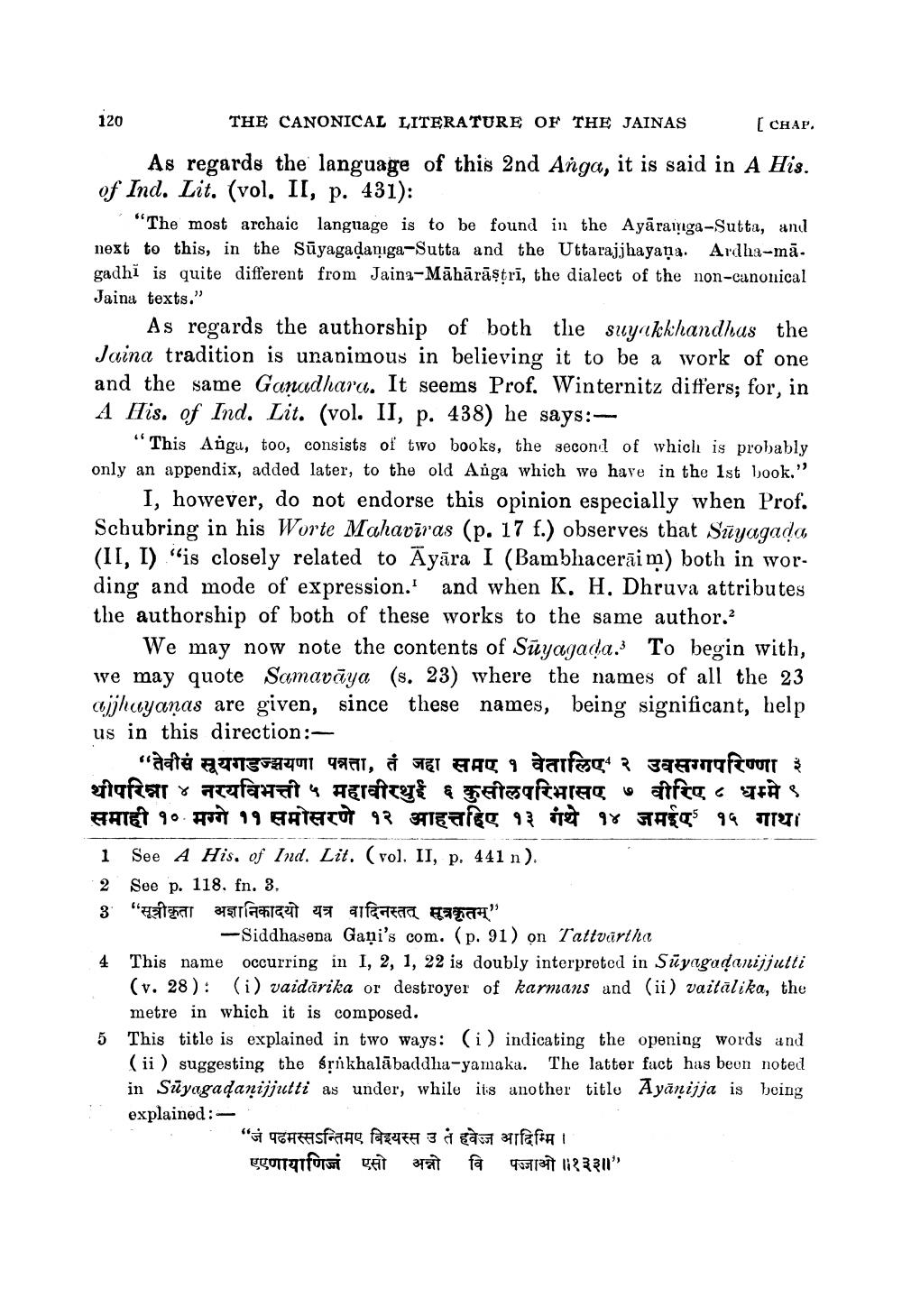________________
120
THE CANONICAL LITERATURE OF THE JAINAS [CHAP. As regards the language of this 2nd Anga, it is said in A His. of Ind. Lit. (vol. II, p. 431):
"The most archaic language is to be found in the Ayāramga-Sutta, and next to this, in the Sūyagadanga-Sutta and the Uttarajjhayaņa. Ardha-mā. gadhï is quite different from Jaina-Māhārāştrī, the dialect of the non-canonical Jaina texts."
As regards the authorship of both the suyakkhandhas the Jaina tradition is unanimous in believing it to be a work of one and the same Ganadhara. It seems Prof. Winternitz differs; for, in A Flis. of Ind. Lit. (vol. II, p. 438) he says:
“This Angu, too, consists of two books, the second of which is probably only an appendix, added later, to the old Aiga which we have in the 1st book."
I, however, do not endorse this opinion especially when Prof. Schubring in his Worte Mahavīras (p. 17 f.) observes that Süyagada, (II, I) "is closely related to Ayāra I (Bambhacerāim) both in wording and mode of expression. and when K. H, Dhruva attributes the authorship of both of these works to the same author.
We may now note the contents of Sūyagada. To begin with, we may quote Samavāya (s. 23) where the names of all the 23 cojjhuyanas are given, since these names, being significant, help us in this direction:
"तेवीसं सूयगडज्झयणा पत्नत्ता, तं जहा समए १ वेतालिए' २ उवसग्गपरिण्णा ३ थीपरिन्ना ४ नरयविभत्ती ५ महावीरथुई ६ कुसीलपरिभासए ७ वीरिए ८ धम्मे ९ समाही १० मग्गे ११ समोसरणे १२ आहत्तहिए १३ गंथे १४ जमईए १५ गाथा 1 See A His. of Ind. Lit. (vol. II, p. 441 n). 2 See p. 118. fn. 3. 3 "सूत्रीकृता अज्ञानिकादयो यत्र वादिनस्तत् सूत्रकृतम्"
-Siddhasena Gani's com. (p. 91) on Tattvartha 4 This name occurring in I, 2, 1, 22 is doubly interpreted in Süyagadanijjutti
(v. 28): (i) vaidārika or destroyer of karmans and (ii) vaitālika, the
metre in which it is composed. 5 This title is explained in two ways: (i) indicating the opening words and
(ii) suggesting the frikhalā baddha-yamaka. The latter fact has beon noted in Süyagadanijjutti as under, while its another title Ayänijja is being explained :
"जं पढमस्सऽन्तिमए बिइयस्स उ त हवेज आदिम्मि । एएणायाणिजं एसो अन्नो वि पजाओ॥१३॥"




